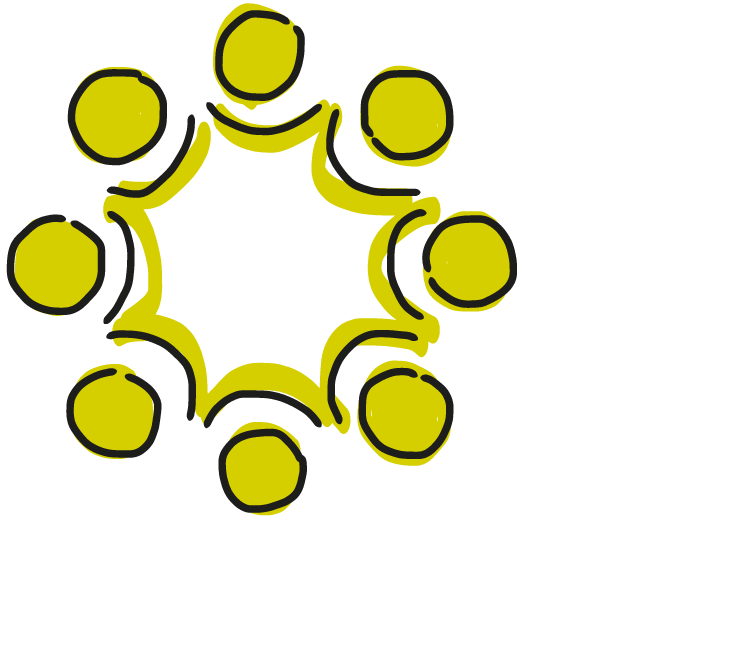Focusing on Humankind: A Values Compass for the Internet Search
Fair, transparent, diverse. This is what the internet search of the future should look like.—That is why the Open Search Foundation is committed to the creation of an open search index and is launching the #ethicsinsearch project. Funded by the Mercator Foundation, it is intended to provide the values-based foundations for the new “Internet index”.
The project results form the value-oriented basis for a future open European search index. They will flow into the development of an ethics toolkit for internet search, into recommendations for action as well as directly into the work on an open search index. They will influence how we deal with ethical issues in the search engine environment in the future and also serve as a basis for the important educational work towards the public.
Why does internet search need ethical guard rails?
What happens to us as individuals and what happens to us as a society when a single search engine determines our orientation on the net? When it uses hidden algorithms to decide which search results we receive and in what order of priority? When it determines how our private data is stored and used?
Today, it is hard to imagine life without internet search. It is a great achievement of the internet age. But: for this lightning-fast availability of information, we are currently paying a high ethical price. This includes potential surveillance and tracking, discrimination, algorithmic bias or possible influence on search results and human behaviour.
Maximum market power, minimum control
Google is by far the most used search engine worldwide. In Europe, more than 93 per cent of all search queries are currently made through it, followed by Bing, Ecosia and DuckDuckGo with small shares. This means that one search engine dominates the way we search the internet and under what conditions. In addition, Google and its parent company Alphabet are constantly hoarding a lot of extremely detailed information about our personal online search behaviour. This accumulation of power and data in the hands of a single corporation in a largely unregulated market is a danger to our democratic society. At the same time, internet search is now so firmly embedded in our everyday lives, in our working and living environments, that we can no longer do without it.
What does ethics have to do with it?
The problem is an overarching one and as such must be solved across disciplines. It is not enough to “only” regulate the market or to “only” create laws or to “only” develop an independent search index, as the Open Search Foundation demands and promotes. – We need everything together and a solid ethical basis based on democratic values.
It is true that the lead of the platform monopolies seems unassailable and ethical values have so far fallen by the wayside. Now, however, with new EU regulatory plans, with the Open Search Foundation’s plans for an open search index, with new search engine concepts venturing into the market, there is an opportunity to anchor human-centred values in internet search.
“Ethics by design” is needed – in other words, ethical standards from the very beginning, firmly embedded and continuously reviewed. The #ethicsinsearch project is intended to provide the ethical foundations for this. With the #ethicsinsearch community, we are creating a framework for researching and discussing ethical issues in the field of internet search.
What exactly is #ethicsinsearch about?
Together with experts and researchers from academia, organisations and civil society, we want to develop a value-oriented approach to internet search. We want to ask questions, identify ethical sticking points, develop concrete solutions and initiate their implementation.
Within the framework of the project, we want to identify relevant ethical questions such as: Which ethical values are relevant for internet search? Which ethical questions and conflicting goals can be identified? At which interfaces can, and at which points must, ethics intervene in internet search? Which ethical problems can be solved through open search approaches? Who is allowed to profit and how? Who owns the data? How do we bring values into the open search index? Where are the “No Go”s – the non-negotiable ethical principles that define what must not be done with search engines?
Yes, but … there are already so many initiatives, research groups, commissions, ethics councils that deal with digital ethics. Now the ethics of internet search as well?
– Right, the topic of digital ethics has fortunately made it onto the agendas. But:
… The ethics of internet search usually play no role there. It is almost always forgotten that internet search is also based on algorithms, and that it has long acted unhindered and unrestrained against many fundamental European values. That democratic values, which are elaborately investigated and propagated elsewhere, are trampled underfoot in internet search. It is therefore about time that the topic is put on the agendas of ethics researchers and experts.
… Ethicists are in the minority in many digital commissions. Instead, these committees are often dominated by representatives from industry and lobbyists.* We are sure that a diverse #ethicsinsearch community can do this better.
Basically, with #ethicsinsearch we do not necessarily want to “invent” new ethical standards, but translate existing ethical principles for internet search and apply them to it. It can be assumed that the ethics of internet search require specific questions and answers in some places. These need to be explored. And specific solutions must be found for them.
*For example, the High-Level Expert Group on Artificial Intelligence (HLEG AI), the expert group that drafted the ethical guidelines in dealing with artificial intelligence for the EU, consisted of four ethicists and 48 non-ethicists. Of the non-ethicists, most were representatives of industry.
With spending 5.75 million euros per year on lobbying, US market leader Google is the lobby frontrunner in Brussels, followed by Facebook (5.5 million) and Microsoft (5.25 million).
“Currently, we are paying a high ethical price for internet search. Values like transparency, privacy and justice are falling by the wayside. What we need is a values-based, responsible internet search.
Christine Plote Co-Manager #ethicsinsearch and founding member Open Search Foundation e.V.
Identify, discuss, implement: Ethics by Design as an opportunity to embed European values in internet search.
Goals and building blocks of #ethicsinsearch
A Values compass for Internet Search
- Creating an Ethical Framework for Internet Search
- Ensure ethics by design in the development and operation of an open search index
#ethicsinsearch-Community and Advisory-Board
- Discuss, research and develop value-based approach to internet search.
- Ongoing advice on development and operation of open search index, such as democratic moderation of content
Public relations
- Initiate discourse in politics, business, public institutions, schools.
- For example, with #ethicsinsearch manifesto, touring lectures, webinars, code of conduct for organisations and companies, teaching units at schools, …
Ethical quality standards for search engines
- Promote the spread of ethically “good”, trustworthy search engines.
- For example: Ethical assessments/seals for search engines, CDR guidelines for companies
Coming soon: Lecture series #ethicsinsearch
Over the next few years, we will organise a series of lectures on the ethics of internet search at European universities. We invite professors or young researchers, entire chairs or individuals. We also invite experts from companies, organisations and politics. Data ethics, digital ethics, …
We look forward to stimulating lectures and exciting discussions. All lectures will be recorded and made available for streaming on a portal.
Call for Experts
Become part of the interdisciplinary, international #ethicsinsearch community!
The project thrives on diverse input and output from the most diverse corners of ethics and beyond. Join in the research and discussion! Within the framework of the community, we want to work together with experts from academia, business and civil society on the ethical framework for internet search.
Important aspects of this are the initiation of research projects around #ethicsinsearch, the publication of expert contributions and the initiation of a discussion in the public. Areas of expertise can be, for example:
- Ethics inkl. Digital Ethics, Data Ethics, Ethics of AI …
- Philosophy/Sociology (of Technology)
- Digital Humanities, Humanistic Digital Innovations
- Theology
- Pedagogy
- Corporate Digital Responsibility
- Technology Assessment
- Technological sustainability
- Algorithmic Bias
- Digital public services
- …
The project #ethicsinsearch – Ethics of the Internet Search of the Open Search Foundation e.V. is funded by Stiftung Mercator.





